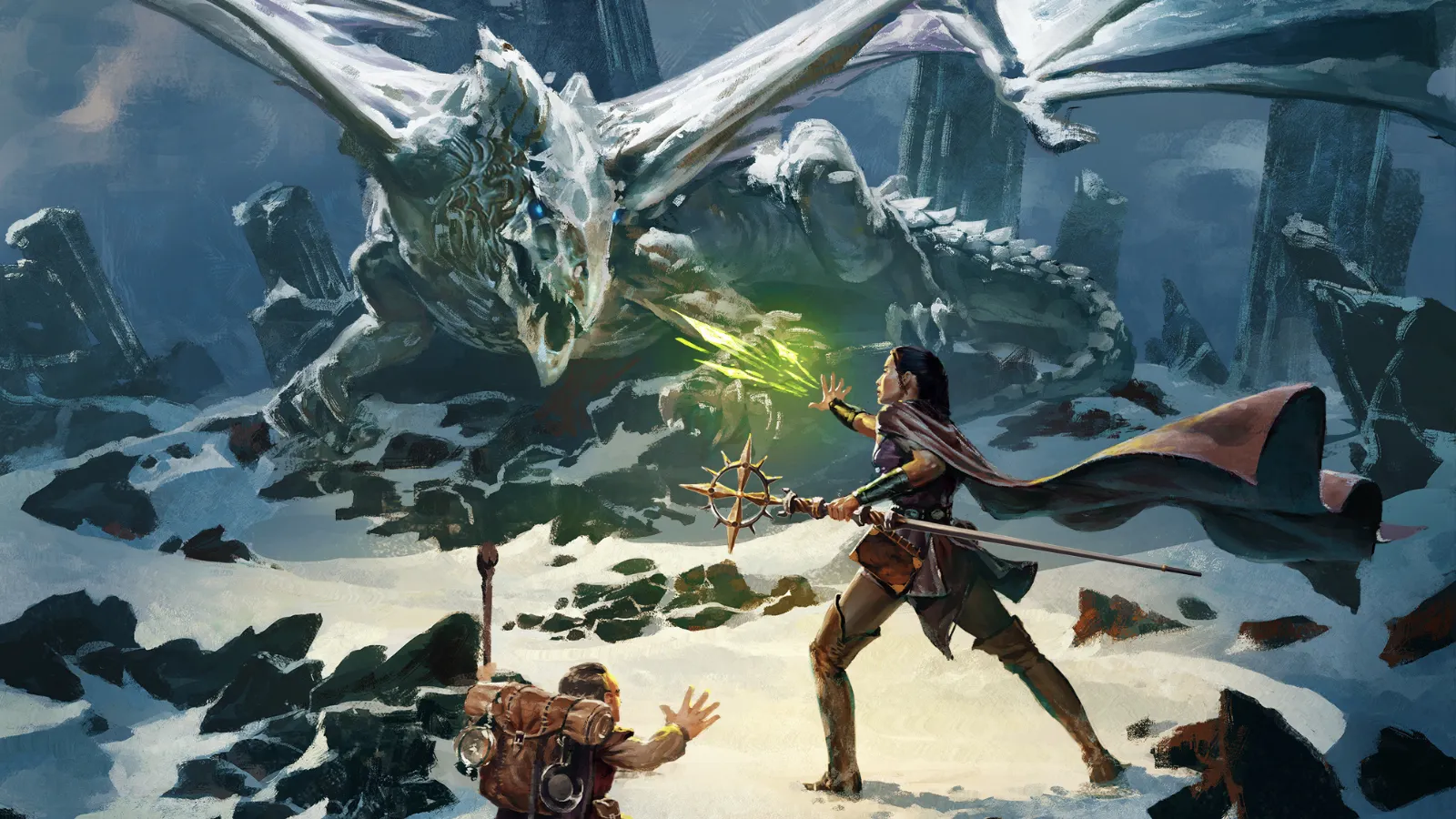The entertainment company behind Transformers, G.I. Joe, and My Little Pony is dabbling in AI—but contrary to media reports, the technology will be applied to future board games, and not mixed into the classic sword and sorcery game Dungeons & Dragons.
According to a report by Gizmodo, the deal with Italian gaming company Xplored would allow Hasbro to implement AI tools that would be used to generate adventures and respond in real-time to player decisions.
Founded in 2008, Xplored is the creator of the Teburu gaming platform, which aims to bridge the gap between tabletop gaming and artificial intelligence.
In a statement provided to Decrypt, a Hasbro spokesperson said, "We’re very excited about the partnership with Xplored, but want to clarify that this partnership is centered around future applications within board games and not the Dungeons & Dragons tabletop roleplaying game or its upcoming virtual tabletop.”
In a separate report, Hasbro Gaming SVP and general manager Adam Biehl told GamesRadar+: “Our approach here is to thoughtfully add multimedia content and digital capabilities to enrich storytelling, game mechanics, and player onboarding while preserving what people value in board games: face-to-face interaction, and the satisfying tactility of rolling dice and moving physical components.”
Although not in the works, a move toward enhancing Dungeons & Dragons with AI would have run contrary to recent moves by some of the game’s biggest vendors.
Earlier this month, OneBookShelf—the company behind the popular DriveThruRPG marketplace and the Dungeons & Dragons-themed Dungeon Masters Guild—updated its AI policies, saying it would not accept content primarily written by AI starting today.
“While we value innovation... Roll20 and DriveThru Marketplaces will not accept commercial content primarily written by AI language generators,” OneBookShelf wrote in a post on July 19. “We acknowledge enforcement challenges, and trust in the goodwill of our partners to offer customers unique works based primarily on human creativity.
“As with our AI-generated art policy, community content program policies are dictated by the publisher that owns it,” the company added.
OneBookShelf, also known as Wolves of Freeport, said creators must indicate if their game, rulebook, or adventure product contains AI-generated content.
While the use of AI in tabletop games is still relatively new, AI use in video game design has come under increasing scrutiny and pushback from the gaming community. In May, Cyan Worlds said its new adventure game Firmament was developed using “AI-assisted content,” including journals, stories, songs, and voice acting.
"I wanted to like this game, but I don't really think I can," a Cyan Worlds’ Kickstarter page user wrote. "And learning how involved 'AI Assisted Content' was in the final product (particularly learning this only after the fact in the credits) honestly feels like a betrayal of my pledge."
Hasbro is just the latest game developer—in this case, tabletop gaming—toying with artificial intelligence. Other companies leveraging AI include Blizzard Entertainment, Roblox, Square Enix, and Ubisoft.
Last month, a developer said a game that contained AI-generated content was rejected by Valve, the company behind the popular Steam gaming platform. At the time, Valve cited copyright concerns and legal ownership of the AI-generated art as the reason for the rejection.
But while there is pushback against using AI in games, some developers welcome AI-generated art and chatbots in roleplaying games and see these tools as a way to do work that is usually within reach of only the largest game developers. One such game is the Discord-based roleplaying game, Alchemy: Battle for Ankhos.
“We have two options,” Alex Finden told Decrypt at SolanaPlayGG. “We can either hire a full art studio, which takes a lot of time and iteration to nail our vision, or I can just get really good at using the prompts to allow AI to create the vision that I have.”
Editor's note: this article has been updated with a statement from Hasbro.

